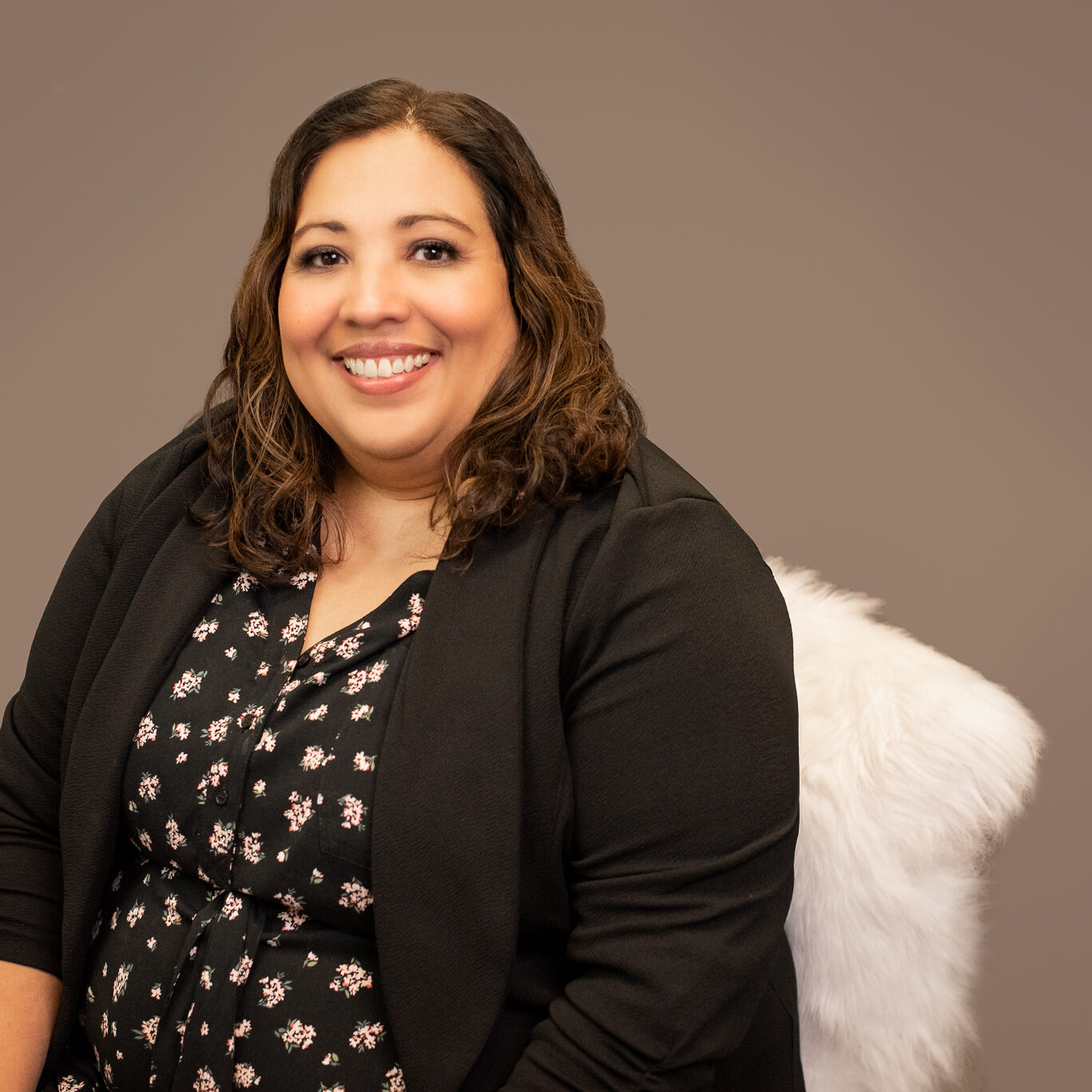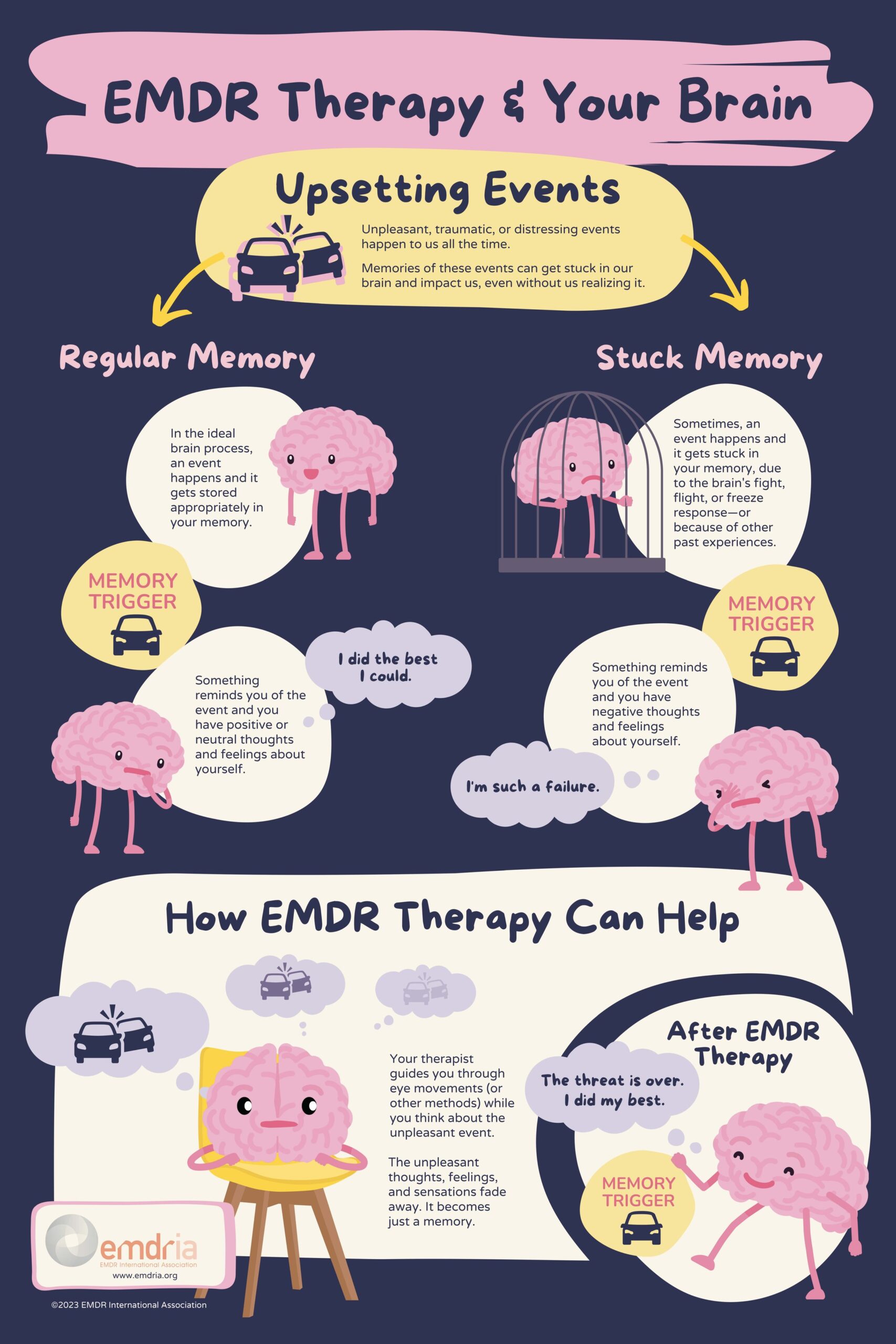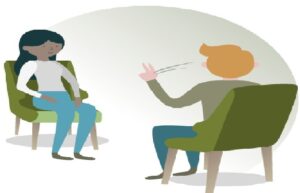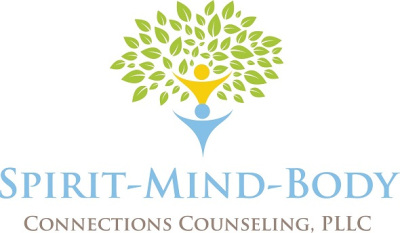Counseling in Wylie, TX for Depression, Anxiety, PTSD, Trauma
Thank you for visiting! My name is Noemi Mendez-Hyams. I am a Licensed Professional Counselor and my office is located in downtown Wylie, TX. I have been fully licensed since 2011 and have worked in various settings. I have been in private practice since 2016. I have a passion for incorporating Eye Movement Desensitization and Reprocessing (EMDR) in sessions as well as components of Cognitive Behavioral Therapy (CBT) and Internal Family Systems (IFS).
I work with adults 18+ (no couples) who are:
-
Feeling stressed at work
-
Have someone neutral to talk with about things in your life
-
Feelings of sadness, loss of interest, low motivation, low energy, poor concentration, poor sleep
-
Having excessive worries, over analyzing things, feeling stuck, overwhelmed, feeling tense
-
Tend to isolate from others, hard to talk about your feelings
-
Often put others needs ahead of your own
-
Feeling stressed and tend to avoid feelings / confrontation / making decisions
-
History of trauma experiences in childhood or adulthood
-
Past experiences feel like they repeat itself in the present
-
Not feeling happy in your current relationship with a significant other or past unsuccessful relationships
I offer traditional talking therapy by itself and/or with EMDR (one hour) as well as an option for consecutive hours of EMDR
Many factors contribute to how often you attend therapy such as work, personal schedules and finances. Think about going to a gym once per month. You will make progress but slower progress over a longer period of time. The pace of progress increases the more often you go to the gym. This concept is similar to attending therapy although you also have to do the "work" in therapy (and the gym) to make progress. There is no right or wrong choice and NO guarantees of outcome in any therapy format.
EMDR is a "bottom-up" approach to therapy (our body up to our brain)
This approach focuses on trauma responses in the body and attached negative beliefs about ourselves. EMDR helps to reduce or desensitize triggers that live in our bodies from prior trauma experiences using a highly researched protocol of using eye movements that is similar to what occurs during REM sleep (rapid eye movement).
Talking Therapy is a "top - down" approach (our brain down to our body)
This approach focuses on our cognitions and trying to reframe and challenge negative beliefs about ourselves. This approach is very effective and also highly researched to help cope with stressors and life events.

"An important aspect of being a therapist is having your own therapy. We are all human and have the same experiences and feelings as our clients. The most important aspects of a therapist are to be genuine, implement self-care, a work-life balance and know when to refer out if issues fall outside the scope of our professional training. It is important to be curious about behavior and want to help the client explore parts of themselves that show up with good intentions but may be blocking potential opportunities to grow. You have to meet people where they are at and know the client is resilient and will inherently know where they need to go with a supportive, non judgmental and safe place to explore their thoughts and feelings."
- Noemi Mendez-Hyams, Licensed Professional Counselor
Noemi Mendez-Hyams, LPC is a Certified EMDR Therapist
What is EMDR?
EMDR stands for “Eye-Movement Desensitization and Reprocessing” and is a non-drug, non-hypnosis, non-evasive and evidence-based psychotherapy procedure. The therapist guides the client in concentrating on a troubling memory or emotion while moving the eyes rapidly back and forth by following the therapist's fingers. It is a well-researched and highly developed way to work with people who have experienced disturbing events in their lives and for whom the bad feelings, images and memories don’t just go away.
What is it used for?
EMDR can be used to treat disturbing memories, panic attacks, sexual and/or physical abuse, stress reduction, depression, guilt, anger and post-traumatic reactions.
I offer EMDR (1 hour) and EMDR Intervals (multiple hours). Care Credit financing options are available for EMDR Intervals.
You can learn more about EMDR, the science, research, see videos and other resources by going to EMDRIA WEBSITE
What is a certified EMDR Therapist?
-
has completed additional levels of continuing education and consultation
-
an advanced degree from an accredited college or university
-
are fully licensed in their mental health professional field for independent practice
-
have a minimum two years of experience in that field
-
completed an EMDR International Association approved training program in EMDR therapy
-
has had a minimum of 50 clinical sessions in which EMDR was utilized
-
obtained 20 hours of consultation in EMDR by an Approved Consultant
-
and to maintain the credential, EMDR International Association Certified Therapists must complete twelve hours of continuing education in EMDR every two years

Why would I choose to do EMDR in Intervals?
EMDR Intervals are an advantage in the sense that you are not committing to a year or years of therapy. Often times "life happens" during the course of treatment and the focus shifts to newer topics and at times can postpone initial goals. Using EMDR Intervals, by attending multiple hours of EMDR therapy in fewer days, helps lessen already present trauma responses to better cope when "life happens". EMDR Intervals are a financial investment up front but you're likely to spend less overall doing it than if you chose to do traditional talking therapy or a combination of traditional talk therapy with EMDR over the course of a year or longer.
I offer three formats for therapy:

Traditional Talk Therapy
Weekly or every other week talk sessions focus on our thoughts (cognitive) / feelings. We work to build positive coping skills to help manage stressors and its impact on our relationships. These sessions are unique to each person, with individualized goals for therapy and at each person's own pace. I utilize aspects of Cognitive Behavioral Therapy and Internal Family Systems (IFS).
Weekly or Every other week Therapy
Insurance Accepted
You pay your copay/co-insurance/deductible
You can self-schedule NOW to get started
If not using insurance the fee is $150 per hour
Examples of Time Commitment:
Weekly Therapy for six months is 24 sessions
Every other week therapy for six months is 12 sessions
Most people come to traditional talk therapy for more than one year
There are NO guarantees of outcome using this method

Consecutive EMDR Intervals
EMDR Intervals are consecutive hours of EMDR therapy tailored to each client. Some people choose this option after years of talking therapy with some improvement but continue to experience trauma responses. A free consult is required to determine if EMDR Intervals would be a good fit for you. These sessions are not covered by insurance but I offer Care Credit options so that financing is not a barrier.
EMDR Therapy in Intervals
Insurance NOT Accepted
Fee: $175 per hour
Care Credit Financing is available
Requires a FREE 50 minute consult
Examples of Time Commitment:
6 days of 4 hour EMDR sessions is 24 sessions
4 days of 3 hour EMDR sessions is 12 sessions
Time in therapy tends to be less overall compared to traditional talk therapy
There are NO guarantees of outcome using this method

Talking Therapy and EMDR
A mix of traditional talking therapy and EMDR in a traditional format of one hour weekly or every other week sessions. We start with traditional talk therapy and work toward incorporating EMDR over time. This option works well if you're interested in EMDR but don't feel "ready". We may use IFS / parts work to address parts of yourself that have good intentions but blocking accessing wounds.
Weekly or Every other week Therapy
Insurance Accepted
You pay your copay/co-insurance/deductible
You can self-schedule NOW to get started
If not using insurance the fee is $150 per hour
Examples of Time Commitment:
Weekly Therapy for six months is 24 sessions
Every other week therapy for six months is 12 sessions
Most people doing traditional talk therapy and EMDR come for one year or longer
There are NO guarantees of outcome using this method
Thinking about therapy is an important first step that can make you feel vulnerable, anxious yet hopeful at the same time. Therapy is a process of collaboration between you and I to develop goals, identify your strengths and natural supports to address the issues that have brought you into counseling and explore how your life experiences have impacted your relationship with yourself as well as others.
I often tell my clients your mental health is just as important as your physical and spiritual health. Therapy can be hard but rewarding work. There are no guarantees in therapy but even the smallest step toward change can be a tremendous leap in the right direction.
HOURS OF OPERATION:
In person & telehealth sessions available:
Monday: 9am - 2pm
Tuesday: 9am - 2pm
Wednesday: 9am - 2pm
Friday: 9am - 1pm
ONLY Telehealth sessions available:
Thursday: 9am - 2pm
Closed:
Saturday
Sunday









